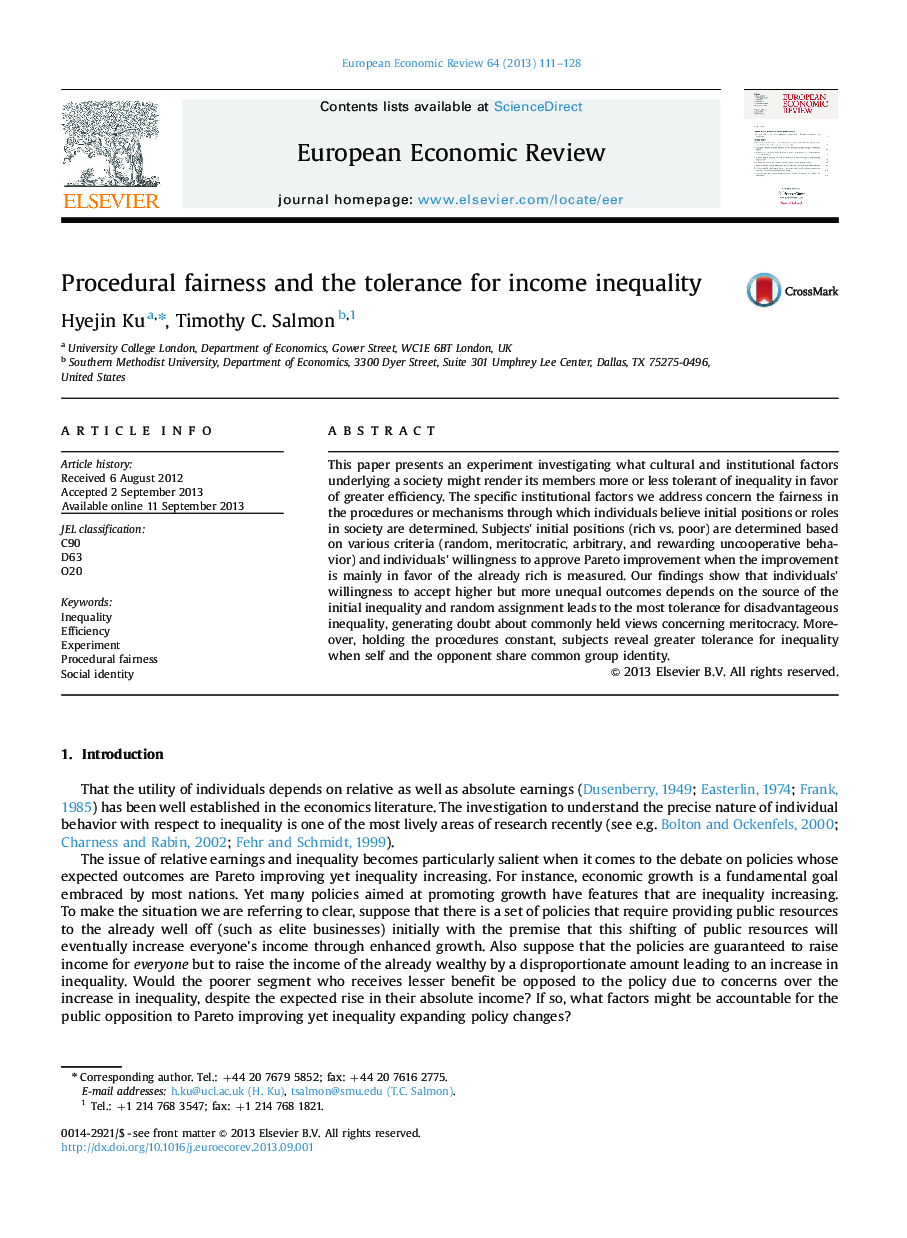| کد مقاله | کد نشریه | سال انتشار | مقاله انگلیسی | نسخه تمام متن |
|---|---|---|---|---|
| 5066919 | 1476804 | 2013 | 18 صفحه PDF | دانلود رایگان |
- Examines tolerance for income inequality under various role assignment procedures.
- Disadvantaged subjects most willing to accept inequality under random assignment.
- Meritocratic system is less favored than random assignment by the disadvantaged.
- Subjects more tolerant of inequality when group identity is shared with opponent.
This paper presents an experiment investigating what cultural and institutional factors underlying a society might render its members more or less tolerant of inequality in favor of greater efficiency. The specific institutional factors we address concern the fairness in the procedures or mechanisms through which individuals believe initial positions or roles in society are determined. Subjects' initial positions (rich vs. poor) are determined based on various criteria (random, meritocratic, arbitrary, and rewarding uncooperative behavior) and individuals' willingness to approve Pareto improvement when the improvement is mainly in favor of the already rich is measured. Our findings show that individuals' willingness to accept higher but more unequal outcomes depends on the source of the initial inequality and random assignment leads to the most tolerance for disadvantageous inequality, generating doubt about commonly held views concerning meritocracy. Moreover, holding the procedures constant, subjects reveal greater tolerance for inequality when self and the opponent share common group identity.
Journal: European Economic Review - Volume 64, November 2013, Pages 111-128
